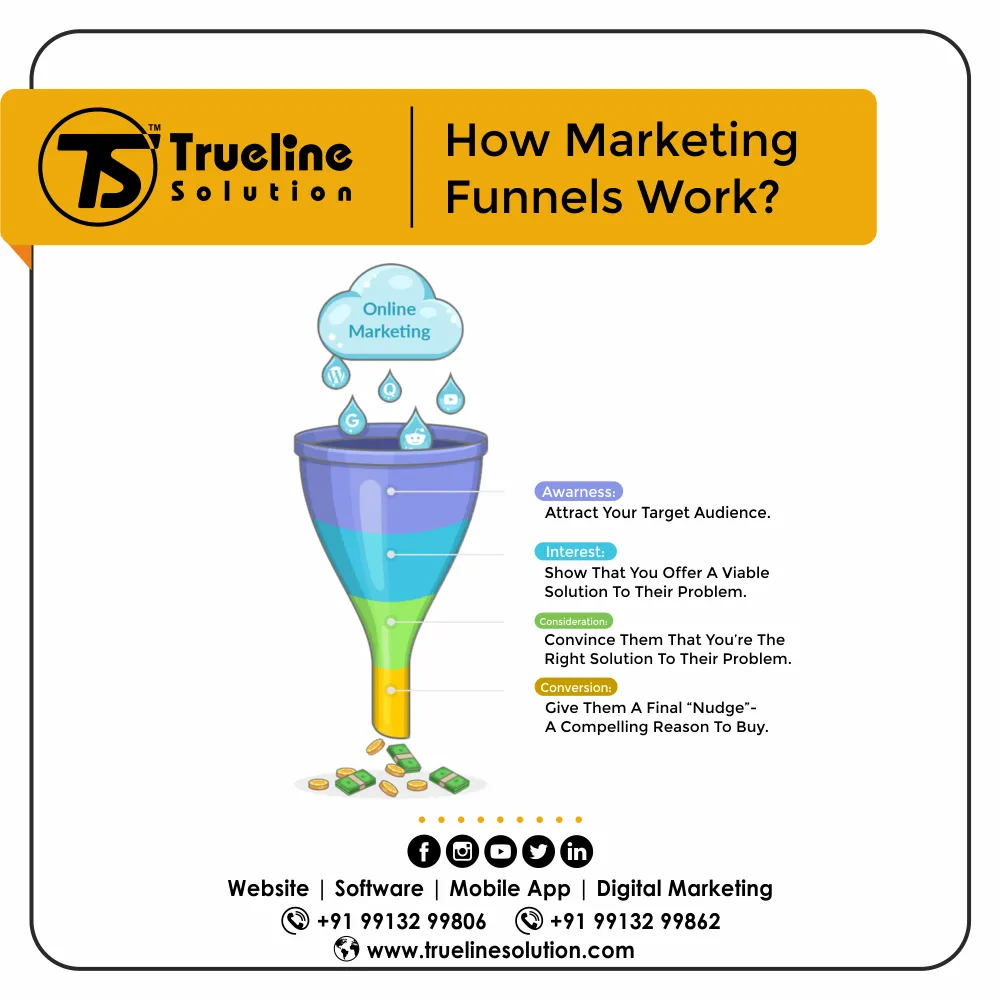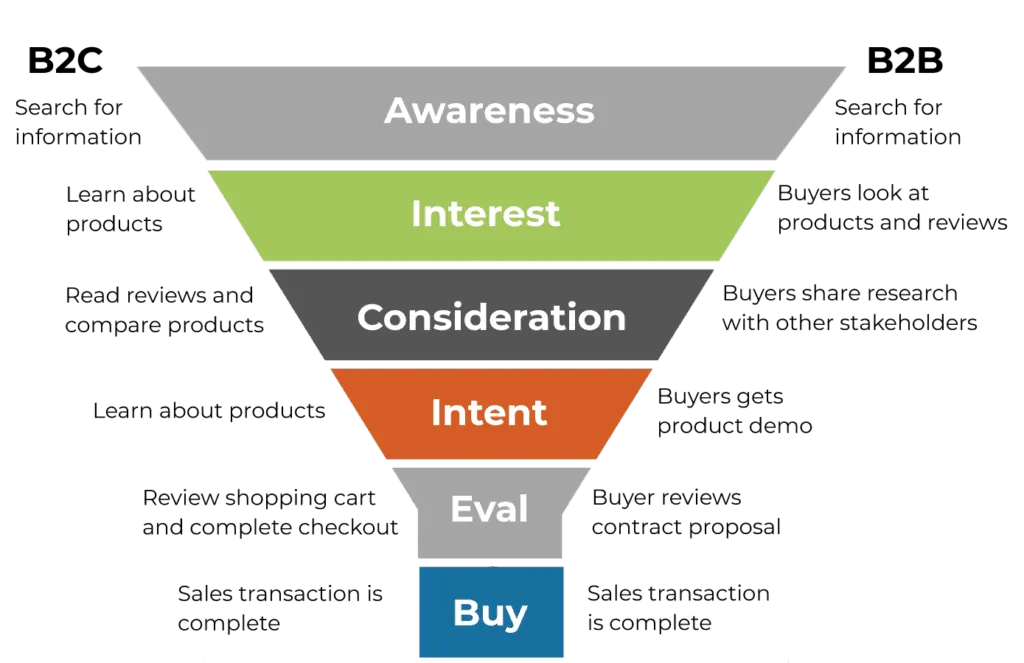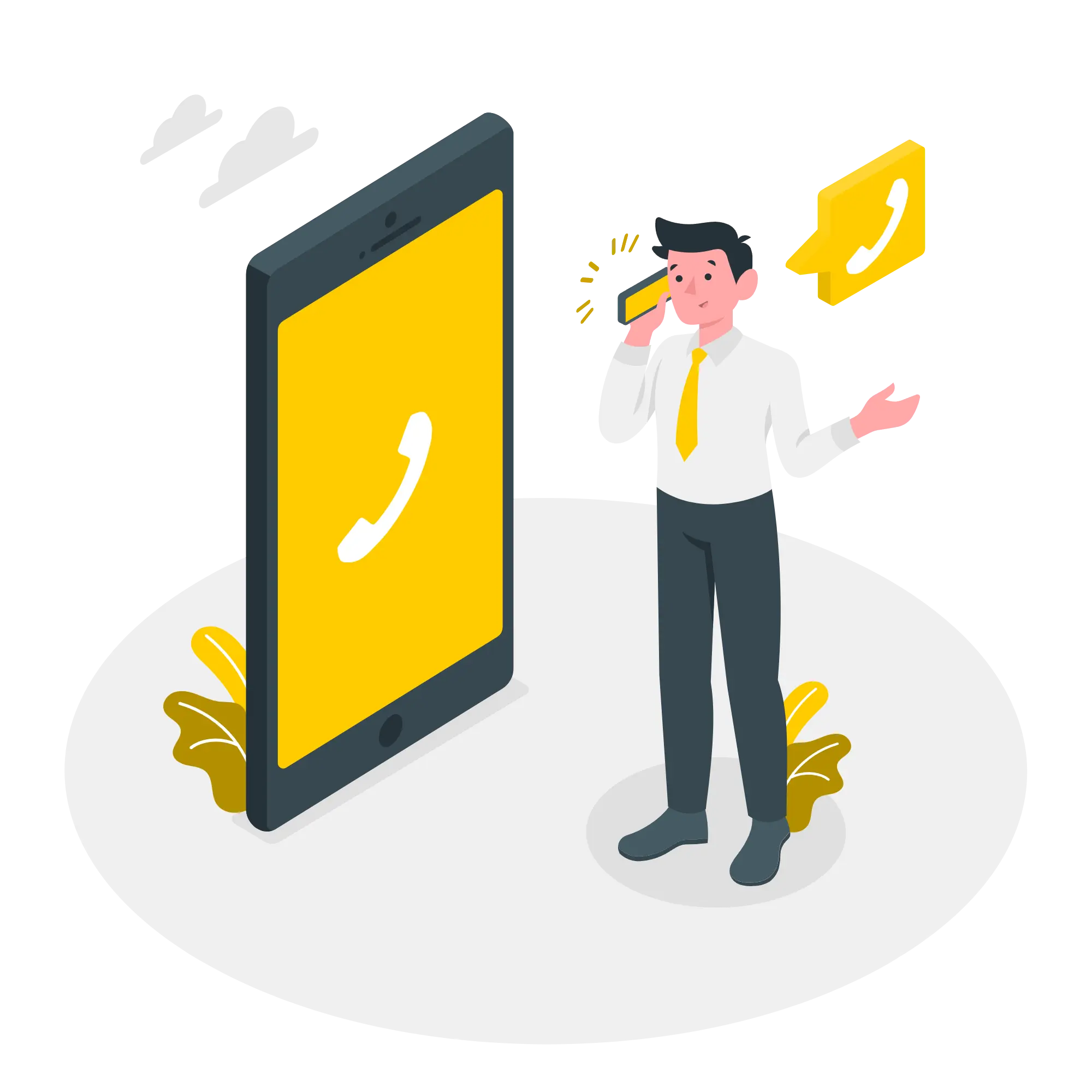0 Comments

Marketing Funnels For Beginners
If you have spent your time learning Digital Marketing then you might have come across the label “Marketing Funnel” and you might be wondering about What is Marketing Funnel?
And if you are very eager to know about the term “Funnel” then I think this blog will be very helpful to you.
What are Marketing Funnels?
“A Marketing Funnel describes your customer’s journey with you.”
How?
Because unquestionably you want your guest user to visit your website and take some actions on your website which you want. Now that actions can be like, signing up or purchasing the products, etc. So the visitors convert from browsing to taking action you want them to take.
A marketing funnel is a system designed to attract and convert customers (or clients) to your business.
Here’s how it works,
You might be wondering looking at the above image that why it’s funnel-shaped, it’s because some customers just “give up” from the middle stage of the funnel.
The top of the funnel is where everyone visits your site. Only the most interested buyers will move further down your funnel.
So after going through the above example you might have got a clear about the working of the purchasing funnel briefly.
Now, let’s learn how you can build your own funnel with a few steps.
- Awareness.
The uppermost stage of the Marketing Funnel is Awareness. Of course, getting traffic on your website will be your first step. An when your customers will be familiar with you, they have a mental note that your brand is connected to the problems they have. And here is where your marketers come in.
Your job is to communicate with them and bring the solutions to the problems they are facing so you need to raise awareness of the issue. Convince the people that the problem should be understood and tackled and resolved. Educate them on how to solve it. And you must be present at least in the main channels where your customers hang out.
- Interest.
The second stage of Marketing Funnel is Interest. This is the stage where you get an opportunity to develop a relationship with the people in the case of the brands. If once leads are generated, they will move on to the interest stage, where they will learn more about the company, its products, and any helpful information it provides.
- Consideration.
The third stage of the Marketing Funnel is Consideration. At this stage, your candidate knows the problem also they know the solution and also they know you can provide that solution for them.
Here, just they know what you can do and you will help them, but that doesn’t mean that they will choose you.
So your job is to convince them that you are the right person or company for the job.
- Conversion.
The last stage of the Marketing Funnel is Conversion. In this stage, your candidate is almost convinced you are the right solution for their problem.
Now you just have to compel them to click “buy” right now.
Why Funnels are beneficial?
Okay so, Marketing Funnels clarify the customer’s journey and make it very easier for companies to follow but the biggest benefit of marketing funnels is their measurability. With the funnel report, you can get to know that where you are losing customers. For instance, if you lose track of your customers before they ever get to the second stage, you need a better brand awareness campaign.
A Marketing Funnels applies to every stage of connecting with your customers whether you are generating traffic for your site or you are looking for online sales, you need a Marketing Funnel.
A Funnel in Real Life.
Funnels occur daily with consumers. Let’s understand the purchase funnel for any retail store and let’s see its corresponding steps in an e-commerce store.
|
Retail Store Funnel |
E-Commerce Funnel |
|
A customer walks into the store. |
Customers visit the eCommerce website. |
|
A customer looks at products. |
Customer views a product page. |
|
The customer grabs the item and puts it in the cart. |
The customer adds the item to the cart. |
|
A customer walks to checkout. |
Customer enters checkout process. |
|
The customer completes a purchase with the store clerk. |
The customer finishes the checkout process and clicks “Purchase”. |
All I want to say is that just imagine that you are having an E-Commerce website and customers have viewed your website, suppose 1000 visitors to the site from that 100% visitors are the Total Visitors of your site then from that 100% only 70% visitors will be in your shopping area and then 35% visitors places Item in the Cart and lastly, only 5% visitors will purchase the item and makes payments.
Okay, so now we have a clear understanding of What is funnel is and why it helps.
Difference between B2B & B2C Marketing Funnels.

The vital differences between B2C and B2B Marketing Funnels are: -
- Generally, B2C consumers navigate the funnel alone or with the tiny group of trusted advisors (they may be friends & family usually), whereas B2B consumers have larger and more focused buying groups.
- B2C consumers may never interact directly with a company representative, while B2B clients directly interact with sales representatives in the lower stages of the marketing funnel.
You can reshape your funnel effectively that suits your user personas.





Leave a Comment
Your email address will not be published. Required fields are marked *